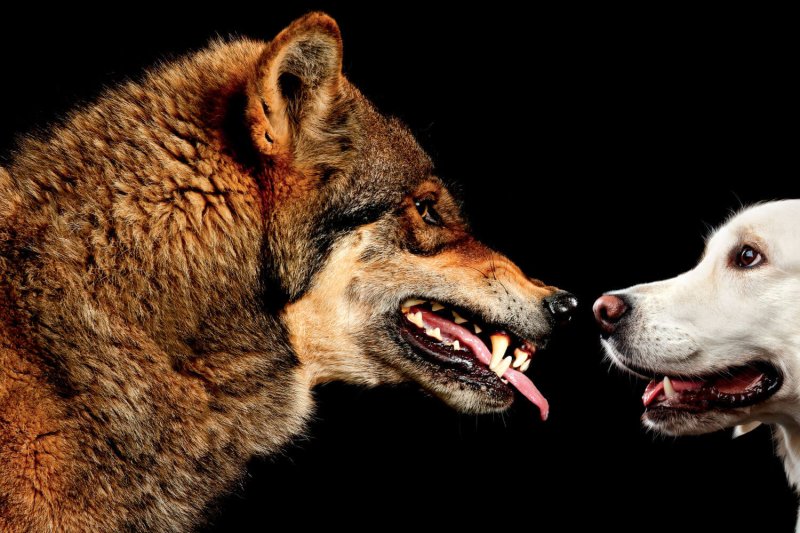We still don’t know exactly when or where dog domestication first happened; it already had a pretty complex history by 11,000 years ago. But it looks like it only happened once. The ancient genomes suggest that dogs all share a common ancestor, which they don’t share with modern wolves. According to [researcher Anders] Bergstrom and his colleagues, that probably means that dogs all descend from one group of wolves, and that group is now extinct.
Modern gray wolves don’t appear to be very closely related to any of the ancient or modern dogs in the study. That suggests that since domestication set them apart, wolves haven’t contributed much DNA to dog bloodlines.
Bergstrom and his colleagues wanted to know how dogs’ population history lined up with that of humans. They compared their ancient dog data to what ancient human DNA tells us about how groups of people migrated and interacted during the last 12,000 years. Not too surprisingly, the timing of splits, mergers, and movements mostly matched up. That suggests that, as groups of people migrated, they brought their dogs with them, and the dogs got up to much the same things the humans got up to when they met new neighbors.































